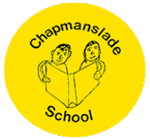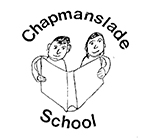The ability to read, write and speak well are essential skills for life. Learning from a wide range of songs, stories, poetry, plays and novels helps our pupils to better understand their own lives, and equips them with the language to express thoughts, feelings, ideas and concepts. Our philosophy for the teaching of English is to encourage our pupils to read as writers and to write as readers, learning constantly from both activities. Because of this, we have chosen The Literary Curriculum, a book-based approach, to aid us in our planning and delivery of reading and writing. The Literary Curriculum immerses children in a literary world, creating strong levels of engagement to provide meaningful and authentic contexts for learning. Children become critical readers and acquire an authorial style as they encounter a wide-range of significant authors and a variety of fiction, non-fiction and poetry.
To teach Phonics, our chosen Systematic Synthetic Phonics Programme we use is Sounds-Write. All of our teachers and many of our teaching assistants throughout the school are already Sounds-Write trained in delivering phonics lessons and intervention. We aim for all practitioners to be trained so that we can support our pupils further as they move up throughout the school.
The early accurate acquisition of vital literacy skills sits at the very heart of our curriculum. From their earliest days at school, children learn the relationship between written symbols (the alphabet) and spoken sounds (phonics) and how these combine to form words then sentences. Pupils learn to form letters correctly and proportionately and to build physical stamina for writing. Grammar and spelling patterns are practised and embedded as children progress up the school. All pupils have opportunities for public speaking through class debates, School Council, church services, performances and assemblies, and all children are encouraged to speak clearly and politely.
Useful Websites
https://www.teachpal.co.uk/free-ebooks-for-children/
https://www.bbc.co.uk/programmes/p007g5y4
https://www.bbc.co.uk/bitesize/subjects/zv48q6f
https://poetryzone.co.uk/all-poems/
https://ictgames.com/mobilePage/lcwc/index.html
Phonics Play – A website with information for parents and games for children.
BBC Bitesize – A fun activity to help children at KS1 learn about phonics.
Family Learning – A website with numerous links to phonics games on other websites.
BBC Words and Pictures – These activities focus on the common spelling patterns for the nine vowel phonemes that are introduced in Year 2.
www.learninggamesforkids.com/spelling_games
Mr Cottrell, English Leader

